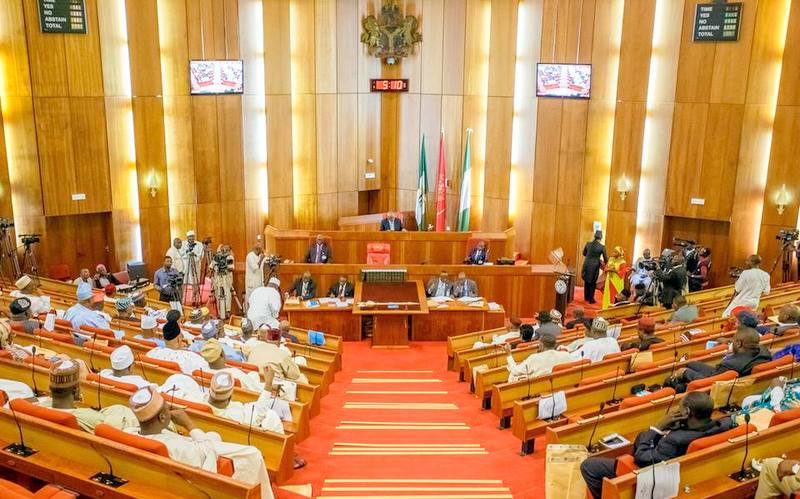This post has already been read 1663 times!
Nigerian Senate Tuesday invited Nigeria’s attorney-general and justice minister Abubakar Malami to explain the state of a $9.6b judgement debt involving the country and an Irish firm Process and Industrial Developments Limited (P&ID).
A senator representing Ekiti Central Senatorial District of Ekiti State Opeyemi Bamidele at the plenary expressed concerns on the debt judgement against Nigeria by an industrial court in the United Kingdom.
He asked the Senate to invite Malami and other relevant stakeholders in the judgement to brief Committees of the Nigerian Senate on the judgement.
The lawmakers afterwards approved the request and ordered Malami with officials of the Nigerian National Petroleum Corporation (NNPC) and professional arbitrators to comprehensively brief the Senate on the details of the contract.
The contract for gas supply and processing (GSPA) was signed by the administration of late President Umaru Yar’Adua and P&ID.
But P&ID sued the Nigerian government for breaching the agreement by failing to provide the gas — or install promised pipelines to the project site as agreed in the contract.
An arbitration tribunal in London awarded the firm $6.6 billion (5.9 billion euros) in damages in January 2017.
P&ID said the accrued interest of $1.2 million a day had pushed that amount to more than $9 billion — about one-fifth of Nigeria’s declared foreign reserves of $45 billion.
The agreement defined wet gas as “associated gas removed, during oil production, having a propane content of not less than 3.5 mol per cent and a butane content of not less than 1.8 mol content, compressed and delivered via pipeline to the site.”
A Nigerian court on Thursday, September 19 ordered the forfeiture of assets owned by P&ID to the Nigerian government
The court also convicted the suspects arraigned on allegations of fraud in the 2010 contract between the Nigerian government and the firm.
The court gave its ruling after the suspects on Thursday pleaded guilty to an 11-count charge filed by Economic Financial Crimes Commission (EFCC).



